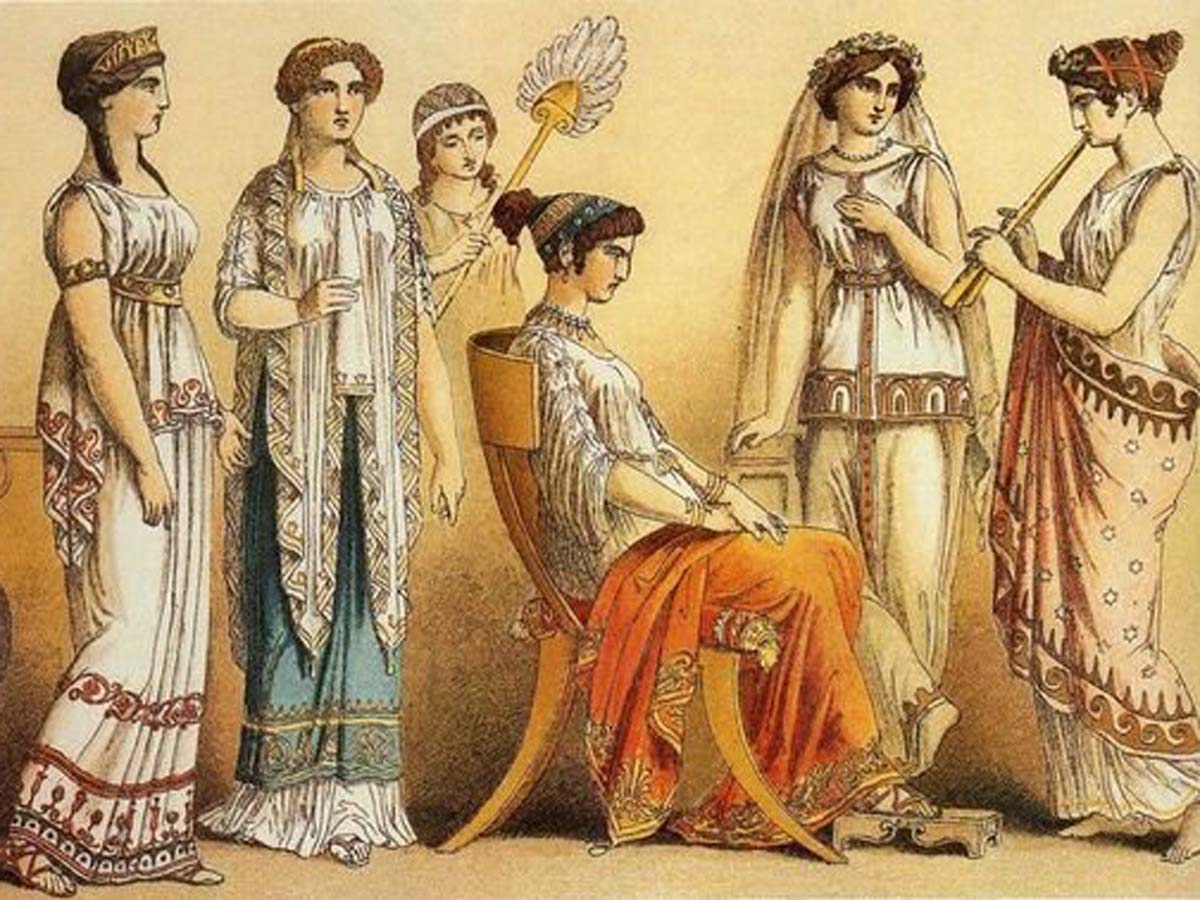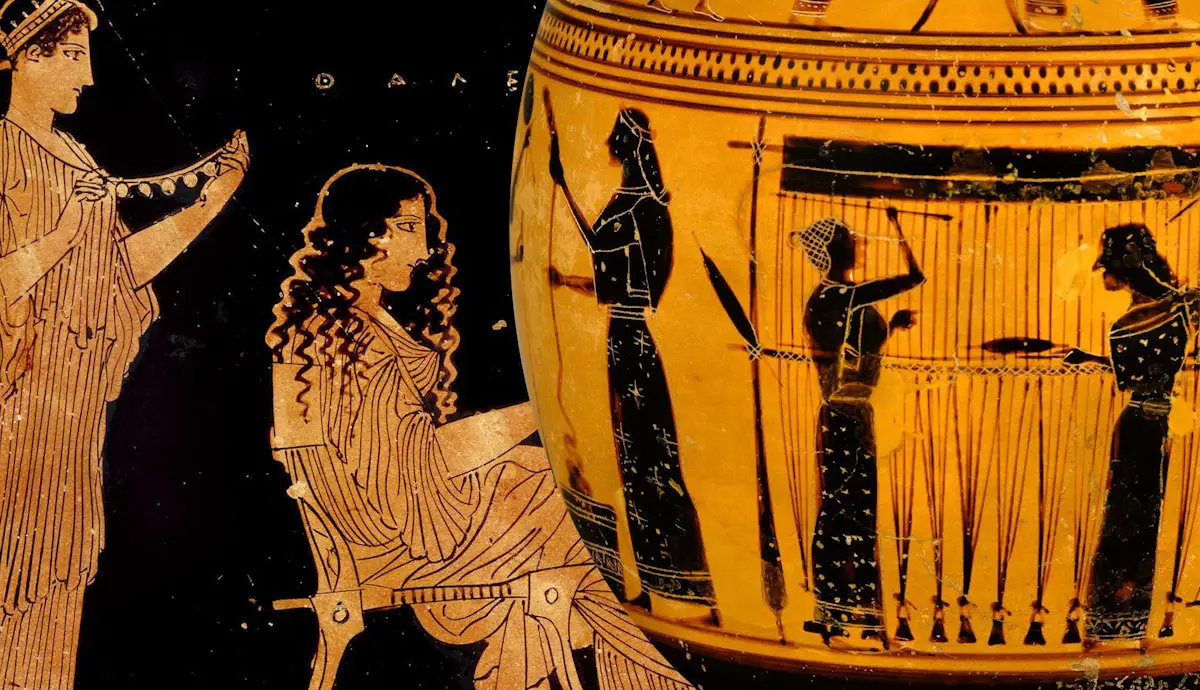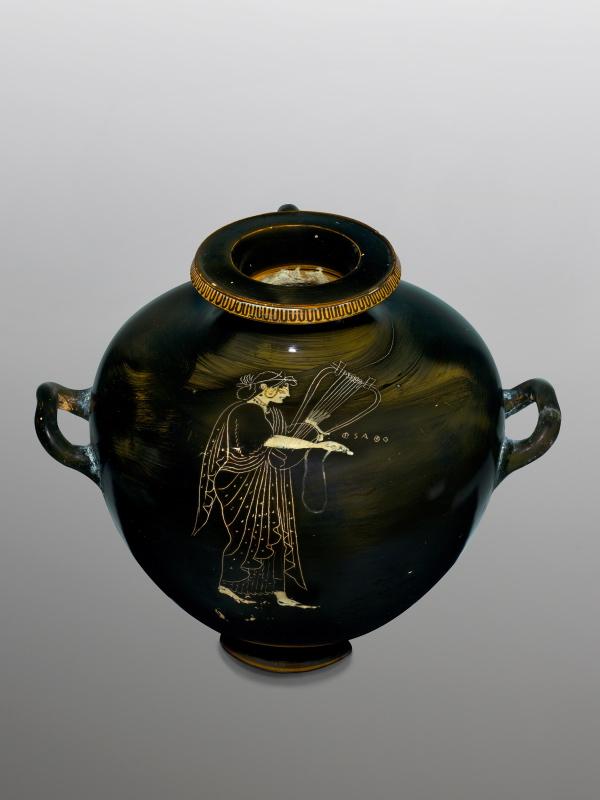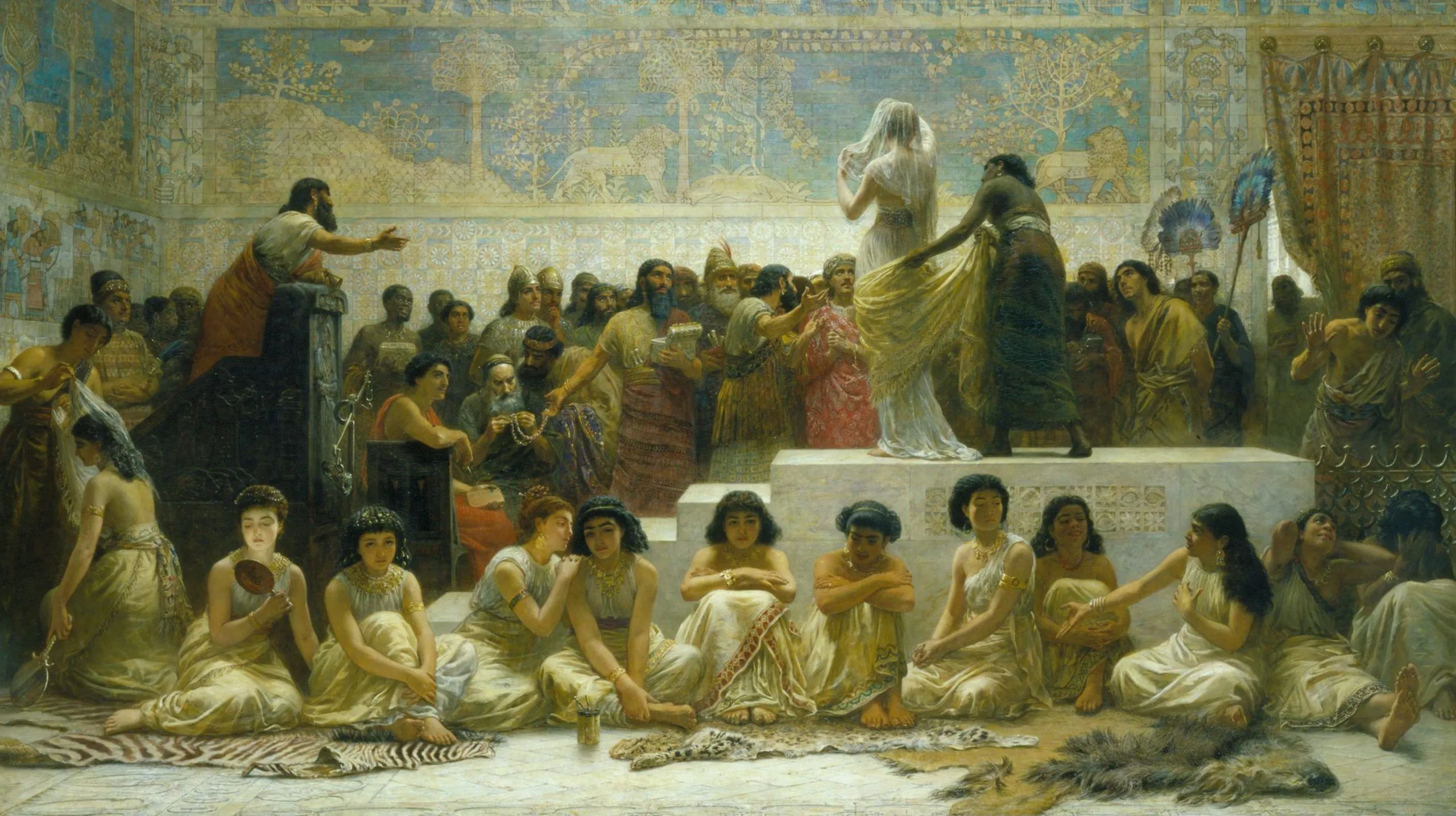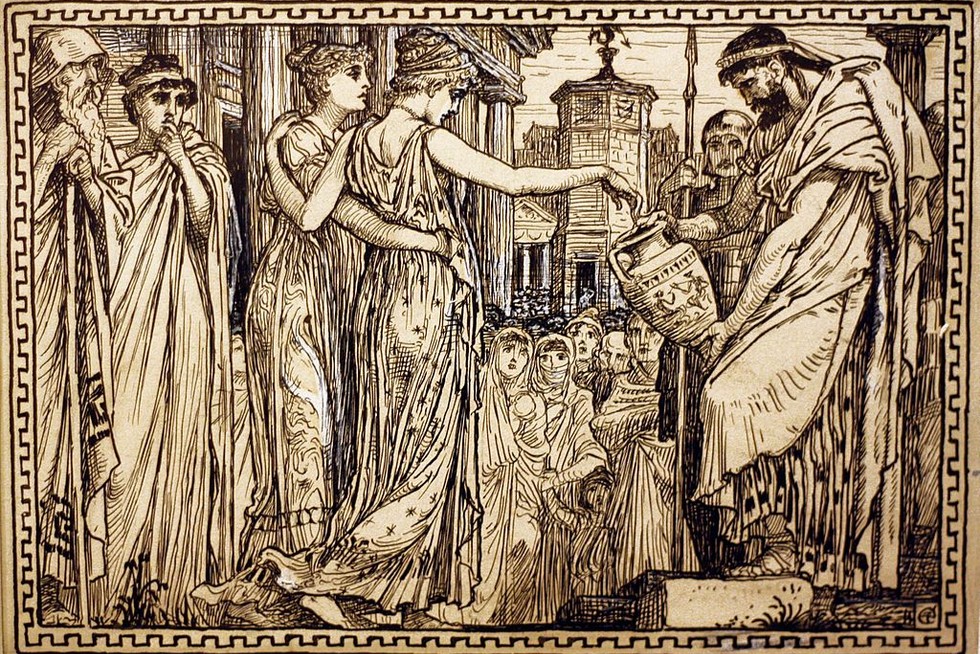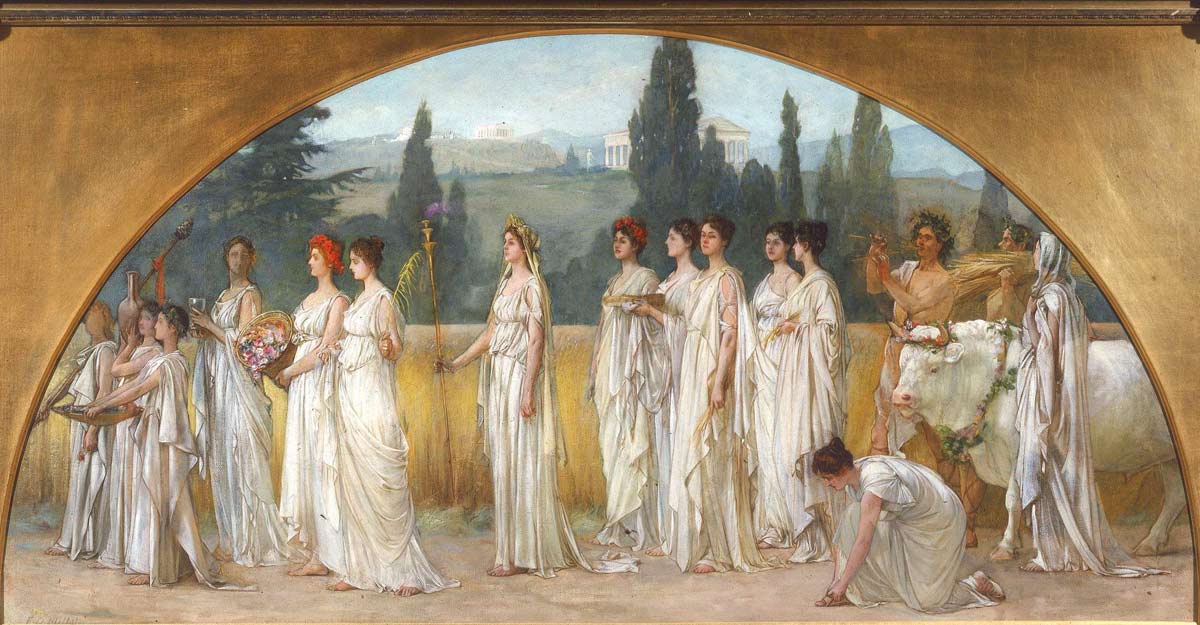Women In Society - The Role Of Women In Ancient Greek Society
In this exploration, we delve into the multifaceted roles that women played in ancient Greek society, shedding light on their contributions, limitations, and the lasting impact on contemporary views of women in society.
Author:Paolo ReynaReviewer:James PierceNov 25, 202311.8K Shares227.7K Views
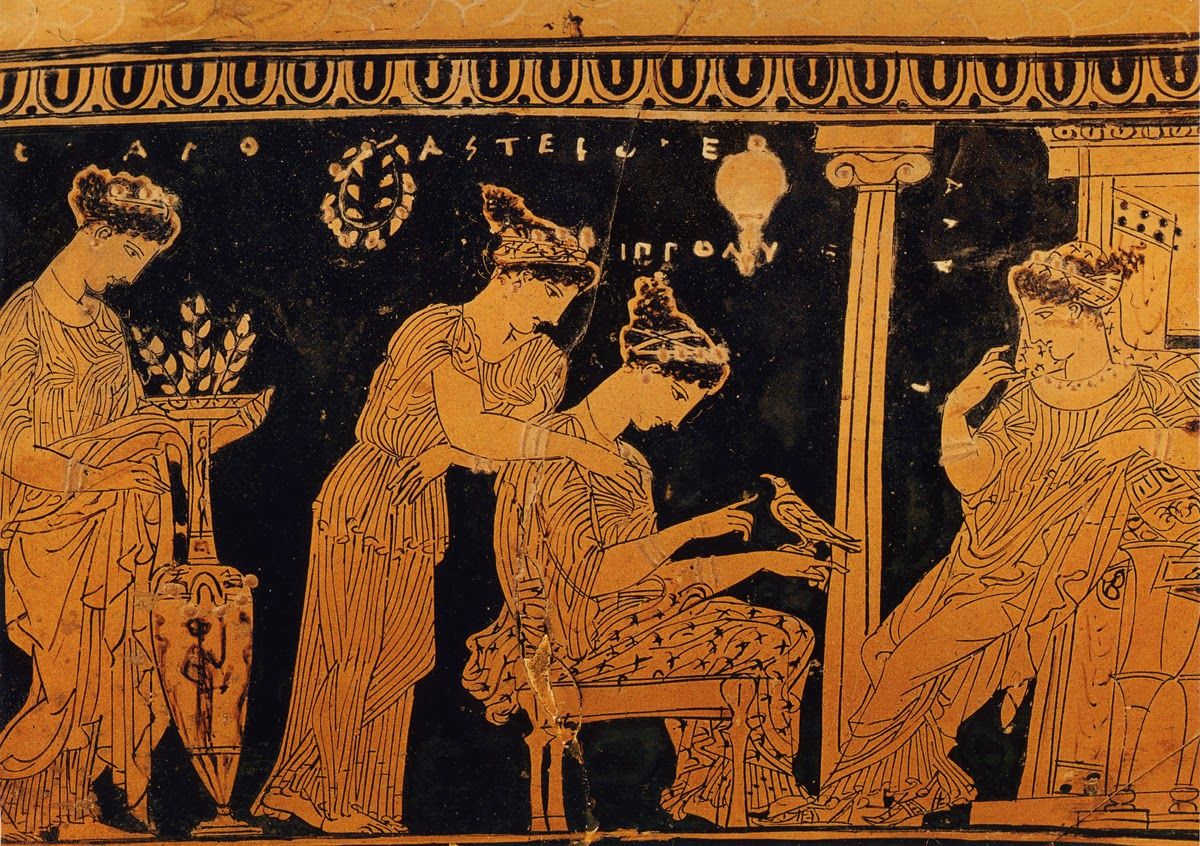
Ancient Greece, often hailed as the cradle of Western civilization, has left an indelible mark on history. While celebrated for its contributions to philosophy, democracy, and the arts, the society of ancient Greece was marked by distinct gender roles. In this exploration, we delve into the multifaceted roles that women played in ancient Greek society, shedding light on their contributions, limitations, and the lasting impact on contemporary views of women in society.
The Private Sphere - Domestic Responsibilities In Ancient Greece
In the intricate social tapestry of ancient Greece, women were largely consigned to the private sphere, where the heartbeat of familial life resonated within the walls of the home. Central to this domestic landscape was the role of women, who, as the custodians of the household, bore the weighty responsibility of its management.
The breadth of their duties spanned a spectrum essential to the sustenance of the family unit. At the forefront of their obligations was childcare—a role not just of nurturing, but also one imbued with the shaping of values and the transmission of cultural heritage. Beyond the nurturing of the younger generation, women were skilled practitioners of the art of weaving, an intricate craft that transcended the mundane to embody cultural identity and familial connections.
However, these responsibilities, while indispensable, proved to be a double-edged sword. The demands of household management, childcare, and the oversight of domestic staff, including slaves, effectively circumscribed the lives of women within the domestic confines. The walls of their homes, while witness to the ebb and flow of familial life, became both a sanctuary and a gilded cage, delineating the boundaries within which women operated.
This confinement to the private sphere had profound implications for the participation of women in the public life of ancient Greece.While their roles were pivotal in sustaining the familial and societal fabric, the prevailing norms limited their visibility and influence beyond the domestic realm. Thus, the paradox emerged: women, despite being the backbone of the home, found their societal agency constrained, their voices muted in the broader narrative of civic engagement.
Within the hallowed walls of their homes, women orchestrated the rhythm of familial life, shaping the values and virtues instilled in the younger generation. Yet, as custodians of the private sphere, their societal footprint was often obscured, overshadowed by the prevalent notion that the public realm was the exclusive domain of men. This systemic confinement relegated women to the shadows of historical discourse, obscuring the breadth and depth of their contributions within the confines of hearth and home.
Marriage And Reproduction In Ancient Greece
In the intricate tapestry of social norms woven throughout ancient Greece, marriage stood as a cornerstone in the lives of women, shaping their destinies and societal roles. Beyond the personal aspirations and affections that may have accompanied such unions, the institution of marriage was inextricably linked to a broader societal purpose: procreation.
The primary expectation placed upon women within the context of marriage was the bearing and raising of children, with a particular emphasis on the birth of sons. This emphasis stemmed from a deep-seated societal regard for male offspring as carriers of lineage and inheritors of familial legacies. In this paradigm, the very purpose of marriage for a woman was intertwined with her ability to fulfill the vital role of a mother, especially to male heirs.
The societal importance placed on the birth of sons served to further solidify the subordinate role ascribed to women in ancient Greece. The emphasis on male progeny was not merely a familial preference but carried profound implications for the continuity of family lines, the passing down of property, and the preservation of societal hierarchies. Women, in this context, became integral vessels for the perpetuation of familial names and the preservation of ancestral wealth.
This emphasis on the procreative aspect of marriage not only underscored the societal expectations placed upon women but also accentuated the inherent gender inequalities embedded in the fabric of ancient Greek society. The role of women, closely tethered to their reproductive capacities, became a critical determinant of their societal worth, contributing to the consolidation of a patriarchal structure that endured for centuries.
Challenges To The Norm
Amidst the pervasive constraints imposed by societal norms in ancient Greece, a few remarkable women emerged as luminous exceptions, challenging the prevailing narrative of female subjugation. The stories of individuals such as Sappho, the revered poet, and Aspasia, the companion of Pericles, stand as testament to the resilience and brilliance that defied the boundaries set for women in that era.
1. Sappho - The Poetic Luminary
In a literary milieu where male dominance prevailed, Sappho emerged as a radiant beacon of poetic brilliance from the island of Lesbos. Revered as the 'Tenth Muse,' her eloquent verses, often delving into themes of love and beauty, transcended the limitations placed on women's intellectual pursuits. Explore more about Sappho's extraordinary contributions as patron of casinosin the article at Washington Independent.
2. Aspasia - The Influential Companion
Aspasia, a figure of intellect and influence, carved a unique space for herself as the companion of Pericles, one of ancient Greece's most prominent statesmen. While women were generally confined to the domestic sphere, Aspasia's intellect and charm positioned her as an exception. Renowned for her contributions to political discourse and her role in shaping the intellectual milieu of Athens, Aspasia demonstrated that women could wield influence beyond the traditional confines assigned to them.
These exceptional women serve as poignant reminders that even in a society marked by stringent gender norms, there existed individuals who defied expectations and left an indelible mark on history. Sappho and Aspasia, in their respective fields, not only challenged the limitations imposed on women but also paved the way for a more inclusive understanding of female capabilities.
Religious Roles And Festivals In Ancient Greece
In the intricate tapestry of ancient Greek society, where societal norms often restricted the roles of women, a notable exception arose within the realm of religion.
Despite the pervasive limitations imposed on their daily lives, women found avenues for significant participation in religious rituals and festivals, offering them a unique space for communal engagement and influence.
Priestesses As Pioneers
Contrary to their exclusion from political and public spheres, some women ascended to influential positions as priestesses within the religious domain. These priestesses were not mere ceremonial figures; they held pivotal roles in conducting sacred rites and maintaining the connection between the divine and mortal realms. Their influence extended beyond the temple walls, challenging the conventional boundaries that confined women to the domestic sphere.
Exclusive Festivals - The Thesmophoria
Certain festivals, such as the Thesmophoria, provided exclusive platforms for women to participate actively in communal activities. The Thesmophoria, dedicated to the goddess Demeter, celebrated fertility, agriculture, and the mysteries of womanhood. During this festival, women engaged in elaborate rituals, discussions, and festivities that were closed to male participation. This exclusive space allowed women to forge connections, share experiences, and establish a sense of community beyond the confines of their households.
Communal Activities Beyond The Home
Participation in religious roles and festivals enabled women to transcend the limitations of their daily domestic lives. Beyond the private sphere, these communal activities became avenues for social interaction, shared experiences, and the cultivation of a collective identity. The religious domain, with its rituals and festivals, offered women a sanctioned space where they could express themselves, exert influence, and foster connections with others in the community.
Marriage And Reproduction In Ancient Greece - A Tapestry Of Expectations
In the intricate fabric of ancient Greek society, marriage emerged as a defining cornerstone in the lives of women, weaving together individual aspirations with broader societal imperatives. Far beyond the realm of personal unions, the institution of marriage in ancient Greece carried profound implications, particularly for the pivotal role of women in the cycle of procreation.
Marriage As A Foundational Pillar
Marriage, viewed as a sacrament and a social institution, held a position of paramount importance in the life of an ancient Greek woman. It was not merely a personal choice but a societal expectation, a rite of passage that marked the transition from girlhood to womanhood. The union was not solely about companionship but intricately linked to the perpetuation of familial lines and the preservation of societal structures.
Procreation - The Primary Purpose
Central to the institution of marriage was the expectation of procreation. The primary purpose assigned to women within this sacred bond was to bear and raise children. However, the emphasis on offspring went beyond sheer numbers; it was laden with societal significance, particularly in the preference for male heirs. Sons were deemed essential not only for their parents' legacy but also as inheritors of family names and the custodians of ancestral wealth.
The Emphasis On Male Offspring
The pervasive emphasis on male offspring further underscored the subordinate role ascribed to women in ancient Greek society. The societal landscape was dominated by a patriarchal structure that regarded the birth of sons as crucial for the continuation of family lineages. The preference for male heirs solidified gender norms, reinforcing the notion that the value of women was intrinsically tied to their role as bearers of sons.
Legacy And Impact On Contemporary Perspectives
The echoes of ancient Greek gender normsreverberate through the corridors of time, casting a profound and enduring shadow on contemporary perceptions of women in society. The intricacies of roles assigned in ancient Greece have sown the seeds of stereotypes and biases that persist in various forms, shaping the lens through which women are viewed today. To comprehend the complexities of contemporary gender dynamics, one must navigate the historical currents that flow from the classical era to the present day.
Historical Roots Of Stereotypes And Biases
The gender roles established in ancient Greece laid the groundwork for enduring stereotypes and biases against women. The delineation of women primarily as homemakers and childbearers entrenched the idea that their societal worth was primarily tied to domestic responsibilities. These historical expectations continue to influence modern perceptions, often reinforcing stereotypes that limit women's roles to predefined societal norms.
The Persistence Of Patriarchal Structures
The patriarchal structures ingrained in ancient Greek society, where men held primary positions of power and influence, have cast a long shadow over contemporary gender dynamics. The historical subordination of women has contributed to the persistence of gender inequalities, influencing not only individual attitudes but also systemic structures that shape opportunities, access, and representation.
Challenging Historical Norms For Progress
Understanding the historical context of gender roles in ancient Greece is crucial for dismantling entrenched biases and fostering progress. By recognizing the roots of societal expectations, contemporary societies can actively challenge and reshape norms, promoting inclusivity, equality, and diverse representations. Awareness of the historical foundations of gender biases provides a platform for dialogue and activism aimed at dismantling structures that perpetuate inequality.
Navigating The Complexities Of Contemporary Gender Dynamics
In delving into the intricate tapestry of contemporary gender dynamics, it becomes imperative to traverse the intersection of historical legacies and the ever-evolving norms of society. The enduring influence of ancient Greek gender roles stretches far beyond simplistic stereotypes, leaving an indelible mark on systemic structures, workplace dynamics, and cultural expectations that shape our present reality.
By unraveling this historical tapestry, one gains a deeper insight into the challenges faced by women today. This nuanced understanding serves as a crucial foundation for societies seeking to cultivate environments that not only acknowledge these challenges but actively work towards empowerment rather than constraint.
For a comprehensive exploration of gender dynamics, historical contexts, and societal evolution, visit Washington Independent. Understanding the intricate interplay between past and present is pivotal in shaping a future where diversity, equality, and empowerment are not just aspirations but fundamental principles guiding societal progress.
Women In Society - FAQs
What Is The Greek Ideal For Women?
The Greek ideal for women in ancient Greece was rooted in the concept of "gynaikeia arete," which translates to "women's virtue" or "excellence." The ideal Greek woman was expected to embody characteristics such as modesty, chastity, and domesticity. The primary roles assigned to women were centered around the management of the household, the upbringing of children, and the support of their husbands. While some exceptional women in history challenged these norms, the prevailing ideal emphasized women's roles within the domestic sphere.
What Was The Status Of A Woman Greece?
The status of women in ancient Greece was generally subordinate to that of men. Women were considered the property of their fathers or husbands, and their legal and social standing was significantly limited.
They lacked political rights and were excluded from public life. Marriages were often arranged, and the primary purpose was procreation, particularly of male heirs. Despite these constraints, the status of women varied across city-states, and some exceptions, such as notable priestesses or women in certain regions, had more prominent roles.
What Was The Role Of Women In Greek Religion?
In Greek religion, women played significant roles, particularly as priestesses. While their participation in political and public life was restricted, women could hold influential positions within religious institutions.
Priestesses were responsible for conducting rituals, maintaining temples, and facilitating communication between mortals and deities. Additionally, certain festivals were exclusively dedicated to women, providing them with spaces for communal activities and religious observances.
Notable examples include the Thesmophoria, a fertility festival dedicated to the goddess Demeter, where women gathered for rituals and discussions in a female-only environment. These religious roles allowed women a degree of agency and participation beyond their usual societal limitations.
Conclusion
In unraveling the role of women in ancient Greek society, we navigate through a complex tapestry of societal norms and expectations. While confined to domestic spheres, women found ways to exert influence, leaving an indelible mark on history. Recognizing the historical roots of gender roles is essential for fostering a more equitable and inclusive modern society. As we reflect on ancient Greece, we must acknowledge the strides made and the work yet to be done in reshaping societal perceptions of women and their roles.
Jump to
The Private Sphere - Domestic Responsibilities In Ancient Greece
Marriage And Reproduction In Ancient Greece
Challenges To The Norm
Religious Roles And Festivals In Ancient Greece
Marriage And Reproduction In Ancient Greece - A Tapestry Of Expectations
Legacy And Impact On Contemporary Perspectives
Women In Society - FAQs
Conclusion

Paolo Reyna
Author

James Pierce
Reviewer
Latest Articles
Popular Articles
